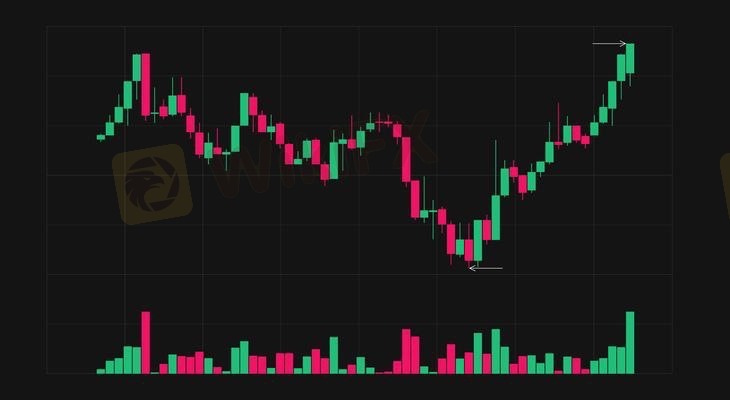
2024-12-19 15:55
NgànhTRADIN VOLUME CHALLENGES
#chriamaspromotiontotrademore
Trading volume challenges refer to the difficulties traders face when trying to buy or sell a financial instrument, such as stocks, options, futures, or cryptocurrencies, due to low or high trading volume. Here are some common trading volume challenges:
*Low Trading Volume Challenges*
1. *Liquidity issues*: Low trading volume can make it difficult to buy or sell an asset quickly and at a fair price.
2. *Wide bid-ask spreads*: Low liquidity can result in wider bid-ask spreads, making it more expensive to trade.
3. *Increased volatility*: Low trading volume can lead to increased price volatility, making it more challenging to predict price movements.
4. *Difficulty in executing large orders*: Low trading volume can make it difficult to execute large orders without significantly affecting the market price.
*High Trading Volume Challenges*
1. *Increased competition*: High trading volume can lead to increased competition among traders, making it more challenging to execute trades at favorable prices.
2. *Fast-paced markets*: High trading volume can result in fast-paced markets, making it essential for traders to be highly attentive and reactive.
3. *Increased risk of slippage*: High trading volume can increase the risk of slippage, which occurs when a trade is executed at a price that is different from the expected price.
4. *Difficulty in identifying trends*: High trading volume can make it challenging to identify trends and patterns in the market.
*Strategies to Overcome Trading Volume Challenges*
1. *Use limit orders*: Limit orders can help traders execute trades at specific prices, reducing the risk of slippage.
2. *Monitor market conditions*: Traders should closely monitor market conditions, including trading volume, to anticipate potential challenges.
3. *Diversify trading strategies*: Traders can diversify their trading strategies to adapt to changing market conditions.
4. *Use technical analysis*: Technical analysis can help traders identify trends and patterns in the market, even in high-volume trading environments.
Thích 0
FX1985175646
Trader
Bình luận phổ biến
Ngành
Có cao quá k?
Ngành
Xin ý kiến liberforex
Ngành
Đầu tư CDG
Ngành
Cắt lỗ
Ngành
Có nên chốt lỗ?
Ngành
Hỏi về dòng tiền
Phân loại diễn đàn

Nền tảng

Triển lãm

IB

Tuyển dụng

EA

Ngành

Chỉ số thị trường

Chỉ số
TRADIN VOLUME CHALLENGES
 Nigeria | 2024-12-19 15:55
Nigeria | 2024-12-19 15:55#chriamaspromotiontotrademore
Trading volume challenges refer to the difficulties traders face when trying to buy or sell a financial instrument, such as stocks, options, futures, or cryptocurrencies, due to low or high trading volume. Here are some common trading volume challenges:
*Low Trading Volume Challenges*
1. *Liquidity issues*: Low trading volume can make it difficult to buy or sell an asset quickly and at a fair price.
2. *Wide bid-ask spreads*: Low liquidity can result in wider bid-ask spreads, making it more expensive to trade.
3. *Increased volatility*: Low trading volume can lead to increased price volatility, making it more challenging to predict price movements.
4. *Difficulty in executing large orders*: Low trading volume can make it difficult to execute large orders without significantly affecting the market price.
*High Trading Volume Challenges*
1. *Increased competition*: High trading volume can lead to increased competition among traders, making it more challenging to execute trades at favorable prices.
2. *Fast-paced markets*: High trading volume can result in fast-paced markets, making it essential for traders to be highly attentive and reactive.
3. *Increased risk of slippage*: High trading volume can increase the risk of slippage, which occurs when a trade is executed at a price that is different from the expected price.
4. *Difficulty in identifying trends*: High trading volume can make it challenging to identify trends and patterns in the market.
*Strategies to Overcome Trading Volume Challenges*
1. *Use limit orders*: Limit orders can help traders execute trades at specific prices, reducing the risk of slippage.
2. *Monitor market conditions*: Traders should closely monitor market conditions, including trading volume, to anticipate potential challenges.
3. *Diversify trading strategies*: Traders can diversify their trading strategies to adapt to changing market conditions.
4. *Use technical analysis*: Technical analysis can help traders identify trends and patterns in the market, even in high-volume trading environments.
Thích 0
Tôi cũng muốn bình luận.
Đặt câu hỏi
0bình luận

Chưa có người bình luận, hãy là người bình luận đầu tiên

Đặt câu hỏi
Chưa có người bình luận, hãy là người bình luận đầu tiên